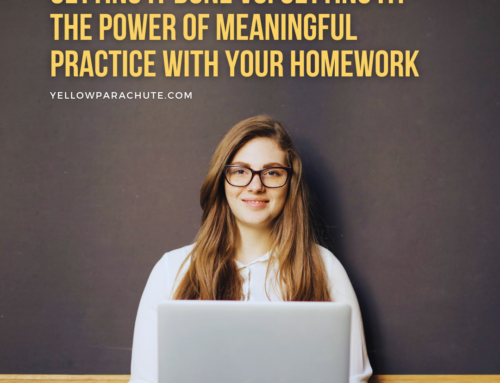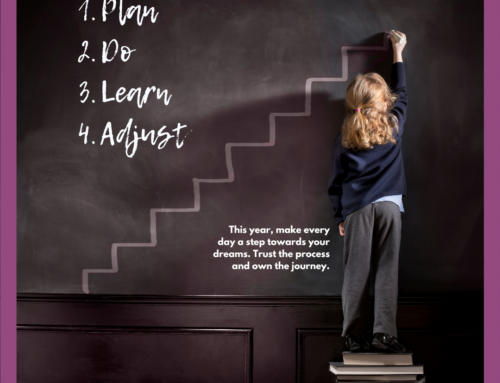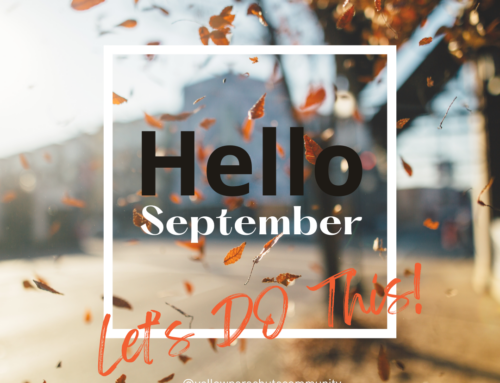“She’s a natural.”
You’ve heard it a million times regarding a talented athlete, academic, artist, musician—anyone who performs above and beyond the normal range of talent, In fact, there’s a movie starring Robert Redford (throwback to the 1980s) with that very title. The phrase is a knee-jerk conclusion based on our previous experiences and what we currently see before us:
- I’ve never seen anyone that good at what she does before.
- She must be naturally talented.
End of story. It’s a saying so ubiquitous that we don’t stop to question its underlying assumptions: is it really raw, “natural” talent? Or could it be a combination of ability, interest developed into passion, determination, practice, sacrifice and focused effort over time?
Yes, it might be quicker and easier to equate “extreme success” with natural ability. In fact, it’s a convenient excuse to avoid trying to be that good ourselves. Remember the lion example from December’s post? We try to avoid doing hard things at all costs without even realizing it. We might think, “That person must be naturally talented, and I could never do what he or she is doing because my previous experiences tell me I can’t do those things.” This thought process undermines our “whatever it takes” mentality, and it leaves us in the stands of mediocrity as we admire the so-called naturals in the arena.
But current research indicates that we have the power to contradict the false assumptions of this mindset. Yes, I said it. We have the power. Though we romanticize the “naturally” talented individual, research and reality point to a second sentiment: hard work = success. So get out your elbow grease and let’s do this.
The essential ingredient in the process of developing success is practice—meaningful practice. And lots of it.
We can understand the whole of success—for example, that other student’s elite performance—as the sum of smaller, overlapping parts. The practice. The fine tuning. The details. Each part is necessary, and we are capable of developing each over time. Practice means meaningfully matching those puzzle pieces to build a 1200 piece puzzle, mashing it all together, then starting again.
We are motivated to spend that time puzzle-piecing a particular skill over and over again because of our interest. Our passion and grit. Our high-level goals, planning, and the belief that they’re achievable: hope.
How does all of this fit into discussion of voice and choice in learning?
It takes practice and repetition to find voice. If an individual can fail early and often without judgment, shame, or regret, they can reflect upon what truly works for their learning process. Then they can try again and reflect more. Without this process, a student cannot appreciate how hard work, grit, and hope is necessary for practicing choice as a learner.
Some students are born with characteristics that make it easier to achieve in our current school system. They already have executive function skills that help them show up as “role model students,” observe how they have helped others, and continue to hone those skills. These students can sit still, concentrate for longer periods of time, engage actively in school’s particular subjects, develop fine motor skills for writing, carry a sense of responsibility and compassion for their teachers and peers, or they’ve learned how to manage these pieces well enough to play the game and succeed. These skills are all valuable, but other skills would be as valuable for learning were our school system organized differently.
But what happens if a student can’t sit still, acts impulsively, or doesn’t understand the material the teacher presents right away? These behaviors have everything to do with biology and nothing to do with “naughtiness” or “worthiness,” but because they don’t conform to the structure the teacher needs to effectively teach a classroom full of kiddos, they get messages that they are not good students and internalize that same sentiment within their own hearts.
Without early intervention and a strong support system of loved ones and mentors—and even sometimes with all of these gifts in place—our “failed and judged” students become disenfranchised, disengaged, and disinterested in school. If they can’t conform to school’s “acceptable” behaviors or achieve the school’s particular outcomes, they learn to reject those behaviors, outcomes, and everything that goes along with it. They learn to see their failures as indicators that they “bad at school,” even though nothing could be further from the truth. These are the lies that are told to our children and that our children tell themselves every day. Because it’s the easiest story to tell when something goes wrong: either you’re bad or I’m bad. Which one will it be?
Remember how we consider “the natural” to be born that way, fully formed, and simply executing her or his fully-developed talent? We do the very same thing for ourselves and others who fail. When we can’t see ourselves for who we really are, we make quick judgments that turn into stories. These narratives stem from a combination of what we know, perceive, and assume—kind of like a hypothesis in science class. A hypothesis, however, is evidence-based and carefully tested in a controlled setting; our stories, more often than not, are distorted from the start by incorrect assumptions. These false perceptions create polarized views of ourselves and others that are harmful to learning and growth.
An example: if Lauren always has the right answers to the teacher’s questions in biology class, I perceive her as smart. And if I don’t have those same answers, I perceive myself as not smart. If Lauren knows how to do the homework and always turns it in on time, she is good at school. If I don’t, I’m not. Because I defined my school experience by comparing myself to Lauren, I conclude that I’m just not cut out for school.
The truth is, a student’s ability to succeed in our current school institution has little to no implication to their success as learners. The students we see achieving in school are not magically born to learn while others are not. All of us are capable of puzzling pieces together. But we must be inspired—on the inside—to do hard work.
Gathering energy from the Christmas and Holiday celebrations, the support of friends and family, and the renewed spirit of perseverance in the New Year, we find a perfect opportunity to begin a new walk led by a renewed vision: voice shepherding choice for our learners of all ages. I invite you to get curious and gritty with me as we help all kiddos experience the power of discovering who they are as learners, ultimately fostering choices that serve their communities and change the world.







